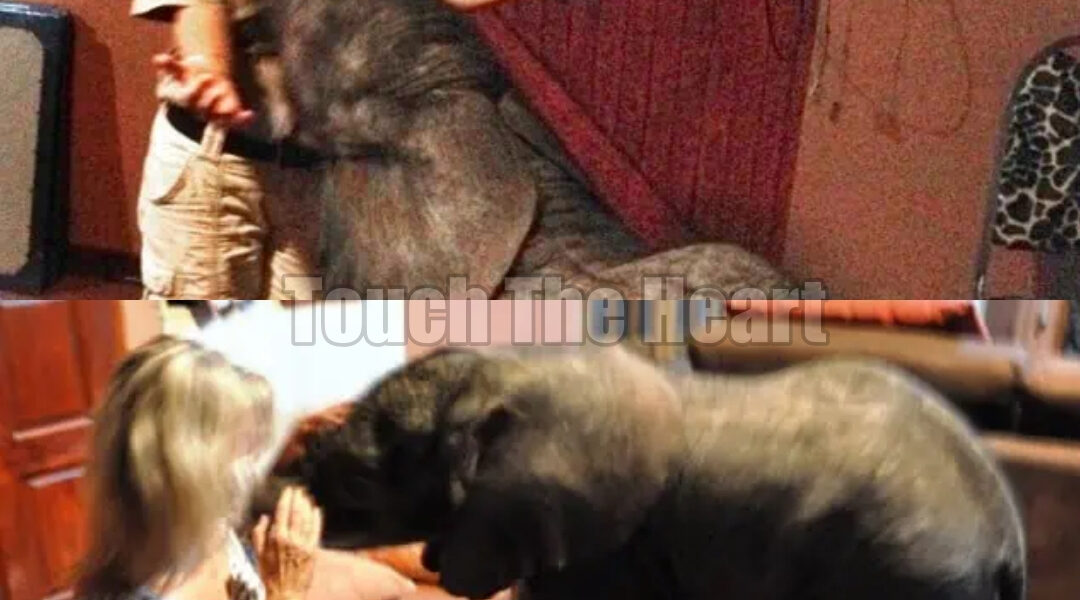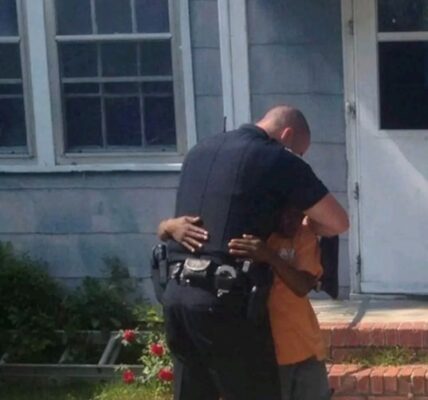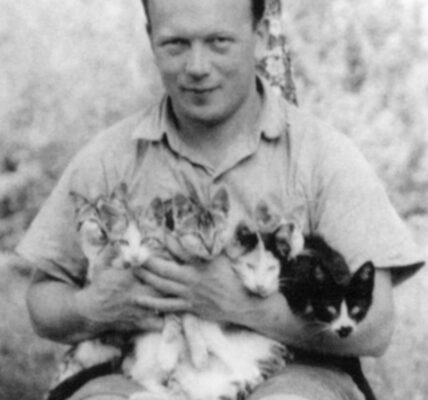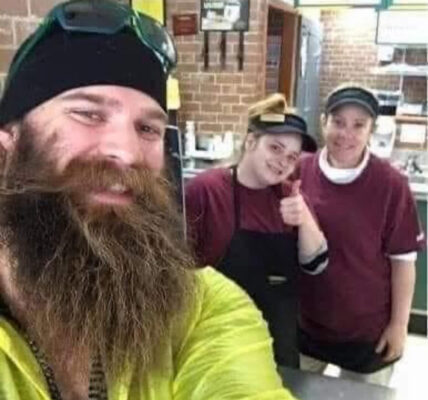She was only ten days old — too young to know where the world ended or where safety began. Too small to understand she was alone. Too new to life to understand the danger she was in.
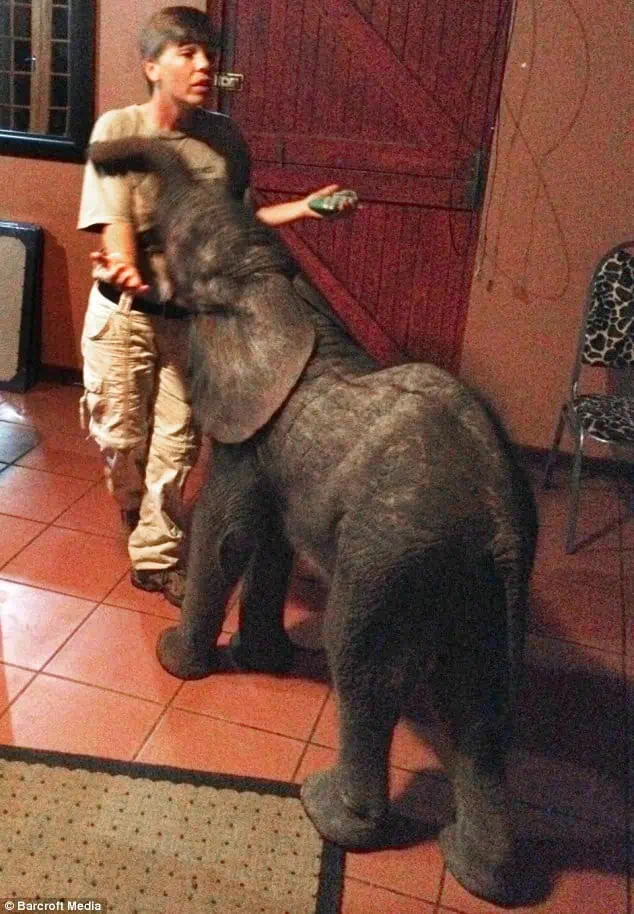
But somehow, in the vastness of the wild, where silence can swallow the weak and predators follow the scent of fear, a newborn elephant calf kept walking. One step after another. Through dust. Through heat. Through instinct and exhaustion. Until the wilderness opened into something no elephant had ever been meant to enter.
A house.
A human house.
No one at the wildlife reserve had ever seen anything like it — a baby elephant, barely bigger than a large dog, wandering through a garden, stepping over a porch, and standing in the middle of a living room as if she had simply chosen a different kind of shelter.
They named her Tom.
She wasn’t frightened. She wasn’t aggressive. She just stood there, swaying gently, the way baby elephants do when they are trying not to collapse from exhaustion. Her ears drooped. Her ribs showed. Her tiny trunk reached toward a pillow, a piece of furniture, a coffee table — not out of curiosity, but as if searching for a heartbeat she had lost.

Everyone who saw her felt the same thing:
She was looking for her mother.
And in that instant, the house became something it had never been before — a refuge for a lost child from another world.
The Uninvited Guest
Francoise Anthony — owner of the reserve, widow of the man who once devoted his life to rescuing elephants — stood frozen, staring at the impossible scene.
She had run this place for fifteen years. She had seen lions wander past her fence, hyenas circle the barns, elephants roam the hills like slow-moving shadows. But never — not in her entire life — had she seen an elephant walk into her house like a child trying to find home again.
“She wasn’t afraid of us,” Francoise said later. “She just looked tired. As if we were the last thing standing between her and giving up.”
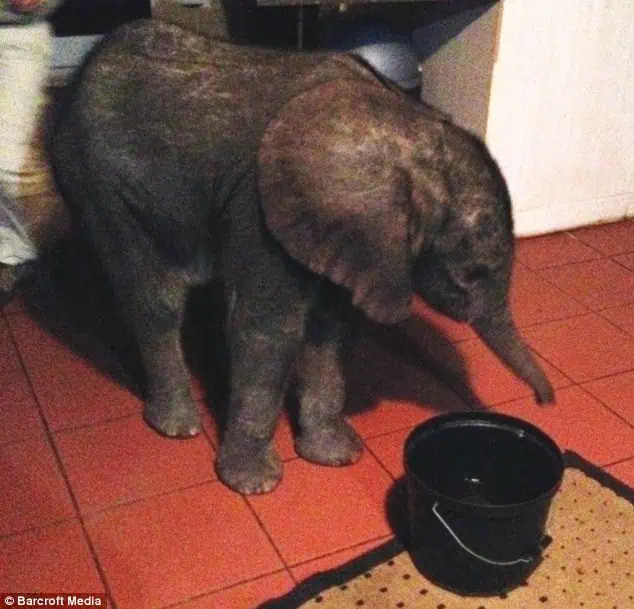
They brought warm milk. They brought water. They made space. The little elephant drank in slow, shaky gulps, then leaned her head against the couch and rested her trunk the way a child might rest her cheek on a blanket.
There was no crying.
There was no panic.
There was just a silence that felt holy — the kind of silence that only happens when a life has just been pulled back from the edge.
A Life Already Losing Strength
Baby elephants do not survive long without a herd. They need milk, protection, body heat, constant touch from their mothers. Alone, they weaken. They stop eating. They stop trusting. They stop trying.
Tom was fading in that direction.

Her legs trembled.
Her eyes half-closed.
Her trunk moved as if made of air.
The staff knew they had only two choices:
Keep her here — alive but motherless.
Or find the herd and give her back the only thing humans could never replace.
They chose the harder option.
The Search for the Mother

While one team cared for Tom in the house, another crew went into the bush to search for elephant tracks. The land was wide, the terrain thick, and time was running out.
What no one knew — what no one could have known — was that this story was not a beginning, but a circle finally closing.
Because somewhere out there in the wild was an elephant who had already crossed paths with this family once before.

Years earlier, Francoise’s late husband, Lawrence Anthony, had saved a mother elephant from being killed after she was declared a “problem animal.” He gave her sanctuary, protection, freedom — and she became one of the most unforgettable elephants in the reserve.
She was wild. She was powerful. She was intelligent.
And now — she was missing a baby.
The Moment Everything Connected

When the search team returned with news, no one spoke for a moment.
They had found the herd.
And the mother was still alive.
Francoise felt something break open in her chest — a mix of memory, grief, and awe. The baby elephant sleeping against her sofa cushion was the daughter of the same elephant her husband had saved years earlier.
“This is his work,” she whispered. “Still happening. Even after he’s gone.”
Some stories don’t end when a life ends.
Some stories continue through the living.

The Reunion
They didn’t carry Tom out with celebration or cheers. They moved slowly, speaking softly, knowing that the slightest human mistake could cause the mother to reject her calf forever.
When they finally reached the herd, the mother stood still — watching, listening, remembering.
There are no words in the language of elephants.
There is touch.
There is breath.
There is recognition.
Tom lifted her trunk first.
Then the mother answered.
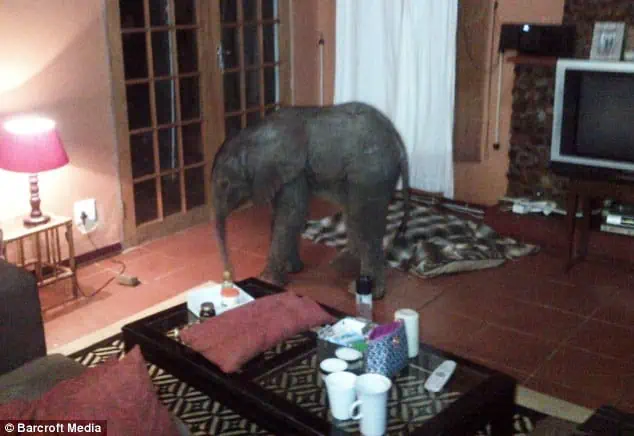
The sound she made wasn’t loud. It wasn’t wild. It was a low, trembling rumble — the kind elephants make only for family.
Tom moved toward her, unsteady but certain.
The mother stepped forward.
And just like that — the world made sense again.
Her baby was home.
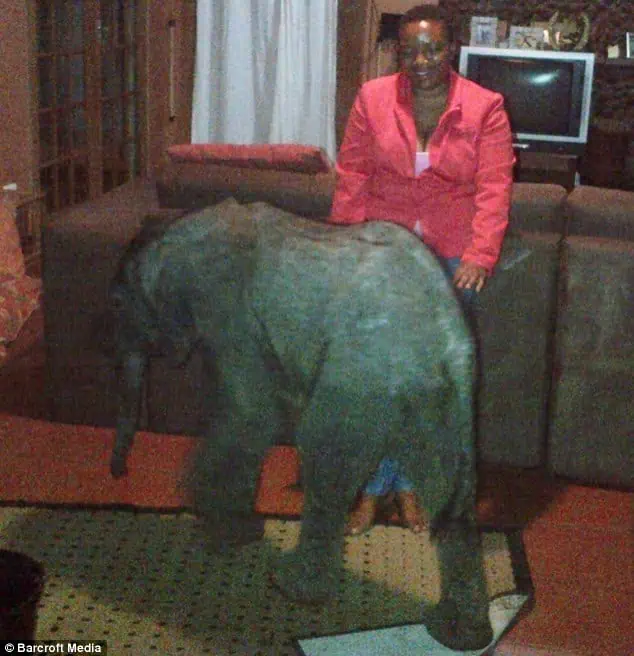
The House Returns to Silence
When it was over, the living room was just a room again — furniture untouched except for one light mark where a tiny trunk had rested. The blankets were still on the floor. The milk bottles still on the counter.
If not for the faint smell of hay and the quiet ache of miracle, no one would ever believe that a newborn elephant once stood there, waiting for a mother who never gave up looking for her.
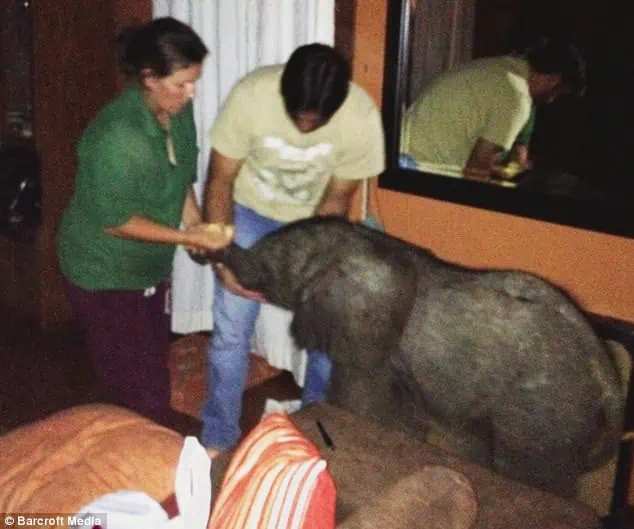
Francoise sat alone and let the moment settle into her bones — not as a story, not as a memory, but as the quiet proof that life still holds room for wonder.
And somewhere, deep in the bush, a little elephant walked beside her mother with a life restored not by humans keeping her…
…but by humans refusing to let her stay lost.
Some Stories Write Themselves

The world will forget the milk bottles.
The couch.
The tiny trunk against the fabric.
But it should remember this:
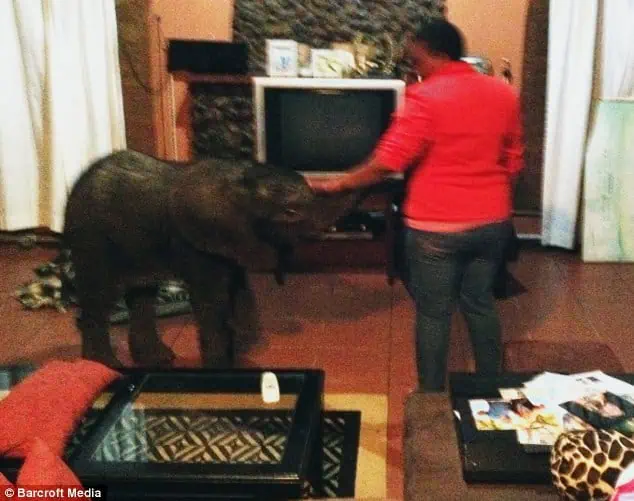
A baby elephant walked into a house, not because she was confused…
…but because, even in the wild, love finds the nearest door and knocks.
And someone — this time — opened it.
